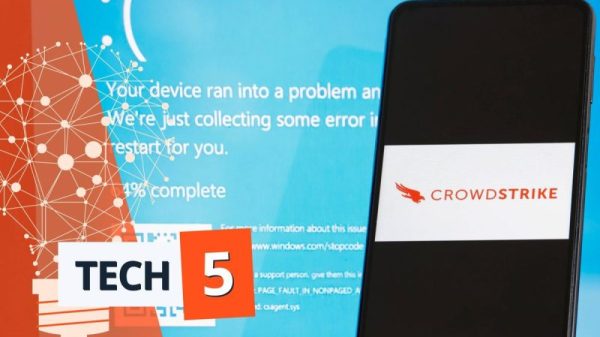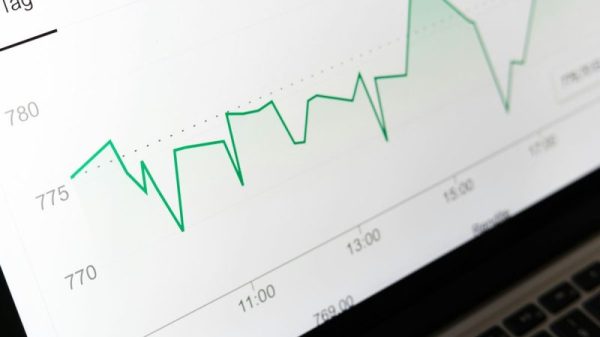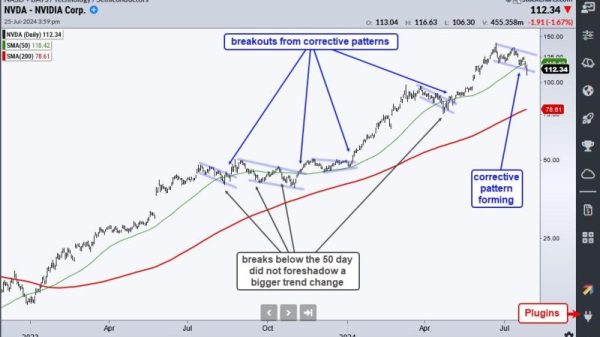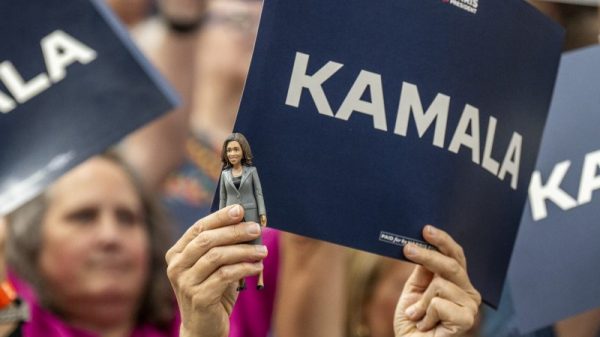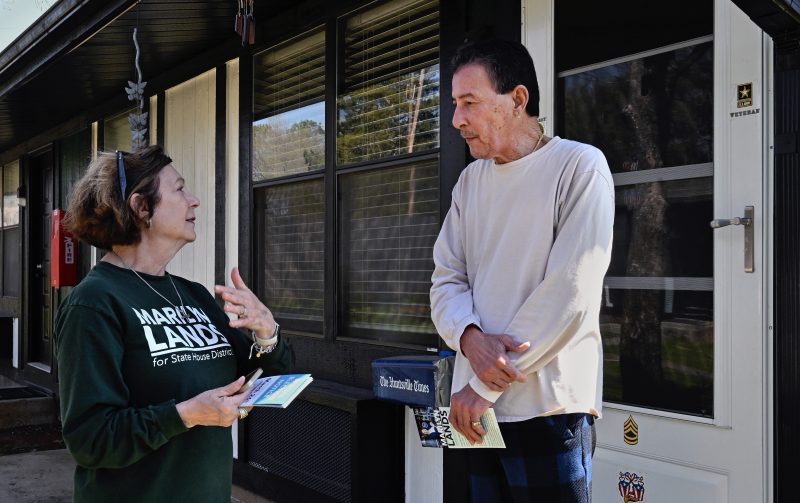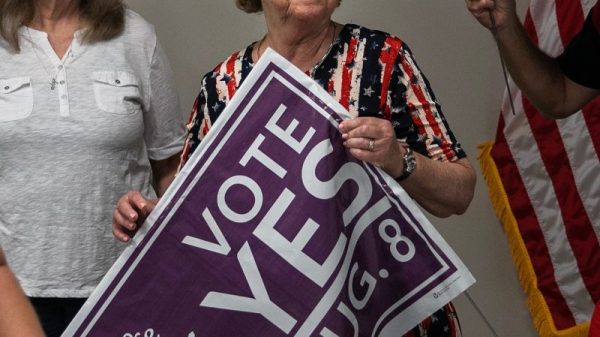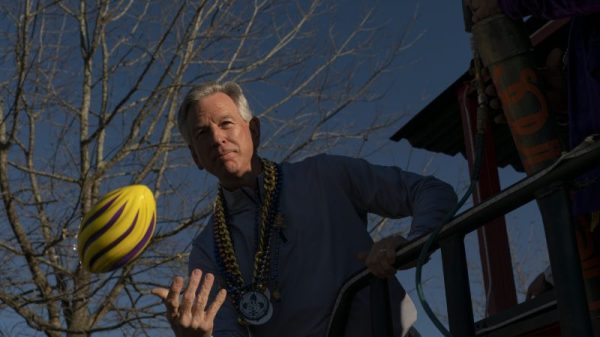HUNTSVILLE, Ala. — Teddy Powell, a Republican running for a state House seat, walked a suburban neighborhood one recent afternoon, pledging to voters that he would fix roads, improve schools and redirect tax dollars to the district. Not once did he bring up abortion and in vitro fertilization — which have sparked an impassioned debate across this state and the country that has put many Republicans on the defensive.
His Democratic opponent, Marilyn Lands, has put abortion and IVF front and center. All of her campaign literature mentions reproductive rights. She has shared how more than 20 years ago she had a nonviable pregnancy that ended in abortion. Lands is running a television commercial telling her story beside an Alabama woman who says her fetus was given a similar fatal diagnosis last year and had to drive 10 hours to get an abortion because of the state’s strict ban.
“It’s shameful that today women have fewer freedoms than I had two decades ago,” Lands says in the ad.
The stark contrast in strategies ahead of Tuesday’s special election in a battleground district — the first electoral showdown between a Democrat and a Republican in the state since Alabama’s Supreme Court ruled in February that frozen embryos created for IVF are people — reflects how the two parties are navigating a heated debate over reproductive issues in competitive races.
The Alabama IVF ruling sent many Republicans scrambling to reinforce their support for the procedure many parents have relied upon to have children. Democrats have renewed their calls to fight GOP efforts to limit abortion access and have pointed to the IVF ruling as they target Republicans who have embraced legislation that says life begins at “the moment of fertilization.” Such a position leads to legal decisions like the one in this state, they have argued.
Democrats centered their pitch in the 2022 midterms on abortion, a successful strategy months after the Supreme Court overturned Roe v. Wade, which had established a constitutional right to an abortion. Since that ruling, Republicans have struggled, politically, to navigate the issue, which is once again shaping up as a major election year factor. The Alabama race offers an early snapshot of voter attitudes before tens of millions of Americans head to the polls in November.
National Democrats view the seat, which a Republican has held for decades, as a test case for their electoral strategy on abortion. The largely affluent, highly-educated, suburban slice of northern Alabama is situated around the Redstone Arsenal, a U.S. Army base that is the state’s largest employer. The area draws scientists and federal employees for jobs at agencies such as the Defense Department, the FBI and NASA.
Former president Donald Trump won the district by a single percentage point in 2020. The lines have changed slightly since then, but the political makeup remains roughly the same. Regina Wagner, a political science professor at the University of Alabama, said a Democratic win would not diminish Republicans’ dominance in the state legislature, but would it would be a notable victory for “symbolic reasons.”
“It would be a sign of the potency of the [IVF] issue in a state like this, especially since it has been a prominent issue in that race,” said Wagner.
The challenge Republicans are confronting on abortion in suburban swing areas such as this one was evident at one of the houses Powell visited in his final push to win over voters.
David Ivey was reading on his porch swing in the early afternoon sun when Powell approached him with a pitch focused on local issues and a warning that his Democratic opponent wanted to make the race about national issues. Ivey, 68, nodded and murmured as Powell handed him a campaign leaflet and said he hoped Ivey would come out to vote for him.
After Powell moved on to the next house, Ivey said in an interview that he planned to vote for Lands largely because of her focus on abortion rights. He said the IVF court ruling was “just horrible,” and mentioned his daughter’s first pregnancy more than a decade ago. He said it ended in abortion at around 20 weeks after a scan determined her baby had a congenital defect that would make survival impossible. Under Alabama’s current abortion law, she would have had to leave the state for that procedure.
“Even if it weren’t for those cases, I’m for women to have the rights to do what they need to do with their own bodies and not have men tell them what they need to do,” said Ivey, a longtime Republican who stopped associating with the party once it nominated Trump for president in 2016. He plans to vote for President Biden this year.
Alabama has one of the strictest abortion laws in the country, which went into effect after the Roe decision. It bans virtually all abortions and has no exceptions for rape or incest, only in some cases where the mother’s life is at risk.
The IVF court ruling centered on whether a fertility clinic storing frozen embryos could be held liable under the state’s Wrongful Death of a Minor Act if the embryos were destroyed. The Alabama Supreme Court ruled that the embryos were people and so the law could be applied. Some antiabortion organizers and lawmakers had previously tried to make destroying embryos illegal.
After the IVF court ruling and the backlash to it, the GOP-led Alabama state legislature hurried to pass a law that protected medical providers and patients from criminal liability for discarding frozen embryos — a move that Powell said he supports, but that Lands said doesn’t go far enough to address the issue.
Powell, 50, a retired Defense Department budget analyst and a Madison City councilman, said in an interview that he wasn’t afraid to talk about those issues, yet he redirected the conversation every time The Washington Post asked about his position on access to abortion and IVF.
Pressed on what he thinks about the state’s abortion restrictions, Powell said, “I mean, I’ll address it. I think there’s room for improvement in the law, but the law is what the law is. And it’s been decided. It is in place.” Asked about his own views on abortion, he replied, “It’s an issue that’s been worked on and my personal opinion, it just really doesn’t matter.”
And when it comes to the IVF ruling, Powell said that had been addressed.
“I understand it’s a national issue and I understand it’s a great thing to run on,” Powell said. “But the reality is, if you’re going to say, ‘Yes, this is an issue, and they did really terrible, they did this terrible thing,’ don’t think you also have to say, ‘you know what, they did. And they recognized it and they fixed it.’”
Lands, 65, a licensed mental health counselor who has actively promoted her support for abortion rights on the campaign trail, said she hasn’t turned this election into a national one as her opponent claims, “the state did that.”
“Women are feeling scared and I think they’re feeling angry. I think they can’t believe that we’ve taken such steps backwards,” she said. “These things have ramifications that I think haven’t been fully thought through.” She said there’s been such tremendous job growth in the district, but people may choose not to relocate to Alabama because of the strict abortion law and IVF ruling.
Lands ran and lost here in 2022 by nearly seven percentage points. The Republican who defeated her, David Cole, resigned the seat and pleaded guilty to committing fraud by running and voting in the district using a fraudulent address, triggering a special election.
This time, Lands has amassed a small army of volunteers from all over the state, as well as support from the regional Planned Parenthood and the Democratic Legislative Campaign Committee, a national group that helps finance state legislative candidates.
Democrats said they believe flipping the seat, even though it would do little to crack Republicans’ supermajority in the Alabama state legislature, would send a signal that reproductive issues resonate with voters.
On a recent Monday evening, about two dozen volunteers fanned out across Lands’s home writing postcards, making calls and affixing polling place addresses to mailers. Lands sat in a on oversized chair in her quiet bedroom calling undecided voters.
“So I’m the Democratic nominee and I am committed to fighting for abortion rights,” she said, before ticking off other issues such as eliminating the state grocery tax.
Lands’s mailers all mention abortion, including one that’s only about that issue that says she will “work tirelessly to repeal” Alabama’s abortion ban and “protect access to reproductive healthcare including IVF.”
Sitting at Lands’ dining room table preparing mailers, Rosemary Finley, 79, a longtime neighbor, described herself as a “reasonable Republican.” She said she will likely write in a candidate for president rather than vote for either Trump or Biden.
Finley said reproductive rights have always been important to her, but before Roe was overturned, they didn’t factor into how she voted. Now they do.
“I believe in people having a choice to build their families as they can,” Finley said, “and that doesn’t need to be governed.”

